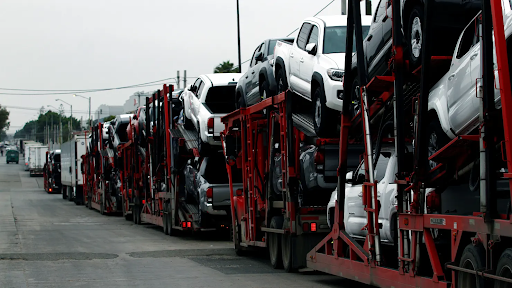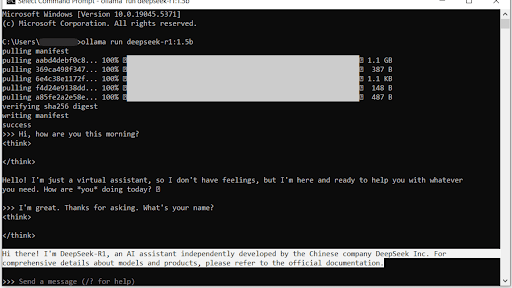
Chinese Lenders and the Challenge of Insufficient Lending | BizBlog News Chinese Lenders Face a Significant Challenge : They Are...

The global automobile industry took another jolt as the stocks of the automobile manufacturers dived after the former President Donald Trump warned that there would be a potential 25% tariff on imports from Mexico and Canada . The news sent ripples in the financial markets and renewed fears over trade tensions , especially as automakers are heavily reliant on cross-border supply chains in North America. Such a tariff , if enacted , would upset the delicate trade relationships that underpin the production and affordability of vehicles .
Donald Trump, in a recent statement, emphasized his intent to impose a 25% tariff on Mexico and Canada, citing long-standing concerns about trade deficits and imbalances . His remarks were not only a nod to his earlier trade policies during his presidency but also a pointed warning to automakers and suppliers who rely on duty-free access to parts and materials across borders under the United States Mexico Canada Agreement (USMCA) .
The auto industry is particularly vulnerable to such disruptions. Many vehicles assembled in the United States include parts manufactured in Mexico and Canada. This has made it possible for automakers to save on costs and pass on competitive pricing to the customers . The threat of tariffs by Trump again demonstrated the prevalent interdependence of the industry with cross-border trade .
Automaker stocks plummeted immediately on the warning. Shares of major automakers, such as General Motors , Ford, and Stellantis , declined noticeably. Investors are jittery, fearing higher costs for manufacturers , retaliatory moves from trading partners , and diluted profit margins .
According to Wall Street analysts , a tariff would effectively raise the cost of vehicles to consumers and thus reduce demand. Manufacturers will have a very hard choice: either to absorb the increased costs cutting into thin margins or to pass them on to customers with a likely loss in sales .
This further adds to market uncertainty as regards the likelihood and timing of such levies. The auto industry relies on stability, and changes in policy, such as those experienced recently, create a challenge in planning for the future .
The USMCA, which took the place of NAFTA in 2020, was established to create a more level playing field for trade and preserve the economic integration of North America . Automakers welcomed the agreement , which finally offered some relief from the unpredictability of the Trump administration’s earlier trade battles. However , Trump’s recent remarks have cast doubts on the long-term stability of the agreement .
Mexico and Canada are two of the most important players in the North American auto industry. While Mexico is a low cost manufacturing hub , its factories supply essential components to U.S . assembly lines . Canada’s role is less pronounced but still advanced manufacturing and high-quality parts. Any disruption in trade with these two countries could impact the industry .
The implications of a 25% tariff would go beyond stock market fluctuations . It could lead to a significant reorganization of supply chains, with automakers possibly seeking alternative manufacturing options to avoid higher tariffs . However, shifting production back to the U.S . one of Trump’s goals would come at a much higher cost .
This impacts jobs as well. A rise in tariffs may lead to the shutdown of factories and manufacturing layoffs, along with output reduction , as firms try to control loss. Mexican and Canadian workers depend on automotive exports for their livelihood and would also suffer through these policy reforms .
Outside the auto industry, Trump’s threat of tariffs sets off more alarmist ripples into broader economic consequences . Trade wars have a knock-on effect in that they usually spill over into other areas, affecting steel , aluminum, and logistics industries alongside it. From small part manufacturers to car dealerships, business activities will suffer because of an auto-dependent market .
Economists have warned that tariffs could slow economic growth and raise inflation, with consumers bearing much of the cost. While Trump’s supporters argue that tariffs can strengthen domestic industries, critics contend that they ultimately harm more than they help by creating inefficiencies and reducing competition .
In the face of such new threats, there’s cautious optimism from automakers. Most are reviewing existing contingency plans that were already established under Trump’s original trade wars. Strategies as simple as diversifying the supply chain, lobbying lawmakers and policymakers, and even hedging currency risks can come under review .
The industry continues to explore innovation and automation to reduce costs and improve efficiency . Investment in electric vehicles and advanced manufacturing techniques is seen as a future-proofing operation. These efforts, however , come at a huge capital expense , which may be strained by tariffs and the uncertainty this creates in the market .
While the tariff warning from Trump has spooked markets, its implementation is uncertain. Policymakers and industry leaders are likely to push back against measures that could destabilize the industry. Trade negotiations, diplomatic interventions, and public pressure could all play a role in averting the worst-case scenario .
For now, automakers and investors must prepare for the continued volatility. The industry will be able to survive as long as it can shift policies while keeping its sights on innovation and sustainability

Chinese Lenders and the Challenge of Insufficient Lending | BizBlog News Chinese Lenders Face a Significant Challenge : They Are...

Nvidia Sees Surge in Retail Investor Interest | AI Powerhouse | Bizblog News Nvidia Experiences a ‘Remarkable’ Surge in Retail...

White Gold: Key to South America Trade Agreement | BizBlog News White Gold: The Cornerstone of Europe’s Trade Agreement with...

Google AI Model Release : The Next Stage in Google’s Virtual Agent Push Google has taken a bold step in...

Ferrari earnings growth 2025 Shares Pop 8% as Luxury Carmaker Sees Further Earnings Growth Ferrari earnings growth 2025 , the...

How China’s DeepSeek Benefits for India: A New Era of Technological Synergy China’s advanced technological solutions, like DeepSeek, have been...